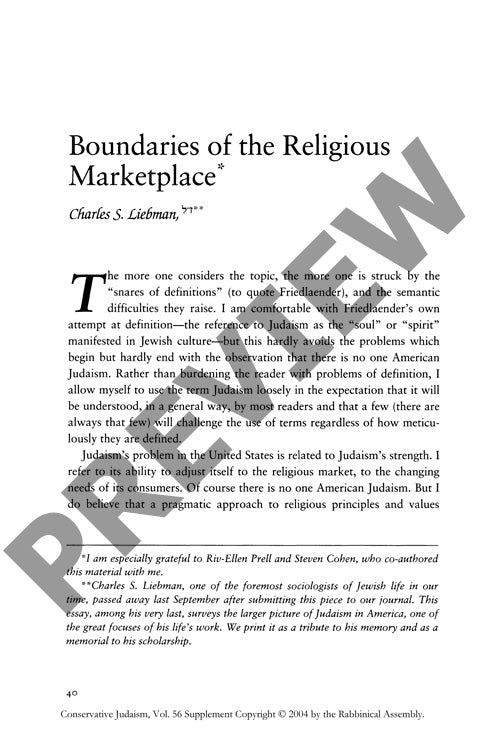Boundaries of the Religious Marketplace
Couldn't load pickup availability
American Judaism's embrace of marketplace dynamics and consumer choice has fundamentally transformed its character, potentially threatening its long-term survival. As Jewish denominations increasingly prioritize member satisfaction over traditional religious authority, distinctive boundaries and communal bonds continue to erode. Through qualitative analysis of denominational trends, survey data including the 1990 National Jewish Population Study, and ethnographic observations of synagogue practices, this research reveals how structural and cultural factors have reshaped Judaism into a pragmatic, accommodating religious system. The methodology encompassed examination of intermarriage patterns, demographic studies, and analysis of religious syncretism across Jewish denominations. Key findings document concerning trends: declining Federation contributions, fluid ethnic identification, religious syncretism blurring Jewish-Christian boundaries, and the Conservative movement's struggle to maintain halakhic observance among non-observant members. While Judaism has successfully adapted to American pluralism, these adaptationist strategies have undermined ethnic solidarity and fostered privatized religiosity that emphasizes individual spiritual fulfillment over collective Jewish identity and obligations. The evidence suggests that marketplace religion, though enabling survival in pluralistic America, poses fundamental challenges to authentic Jewish religious life and community cohesion.

More Information
-
Physical Description
-
Publication Information
Published 2004
ISBN
-
Publication Credits
Charles Liebman

